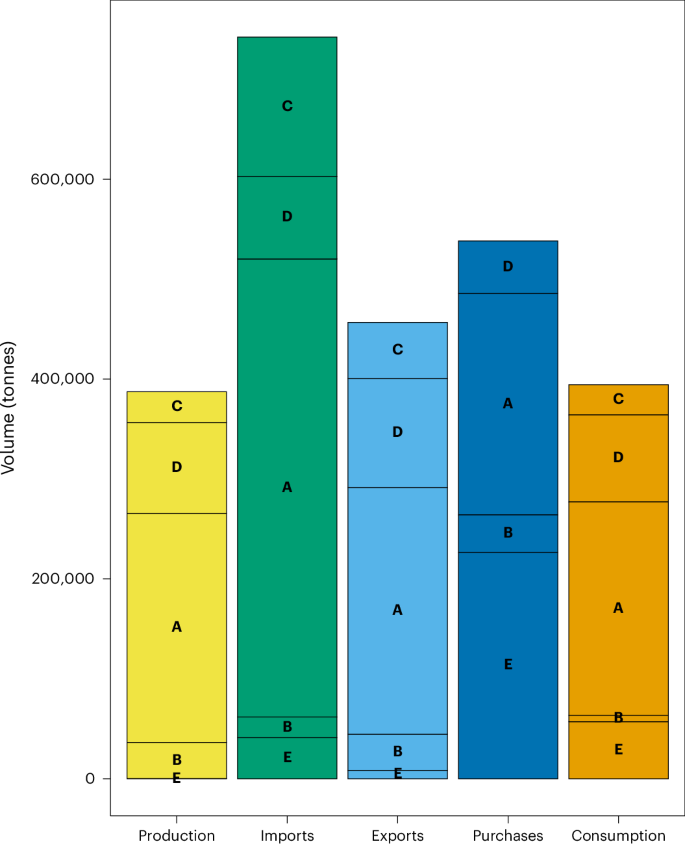Seafood supply mapping reveals production and consumption mismatches and large dietary nutrient losses through exports in the United Kingdom
IF 23.6
Q1 FOOD SCIENCE & TECHNOLOGY
引用次数: 0
Abstract
Seafood can contribute towards healthy and sustainable food systems by improving public health and helping achieve net zero carbon emissions. Here, we provide a high-resolution perspective on UK seafood supplies and nutrient flows at the species level. We mapped seafood production (capture and aquaculture), trade (imports and exports), purchases (within and out of home) and seafood consumption between 2009 and 2020. UK dietary recommendations for finfish consumption were not achieved by domestic production nor national supplies. Mapping dietary nutrient flows revealed that the UK undergoes substantial losses of omega-3 fatty acids, vitamin B12 and vitamin D, which could contribute 73%, 46% and 7% towards UK-recommended nutrient intakes, respectively, through exports of oily fish such as salmon, herring and mackerel. Policies should consider promoting greater consumption of locally produced oily fish species to improve public health and seafood system resilience. A mapping exercise reveals that seafood exports from the UK lead to substantial losses of important nutrients. Finfish consumption recommendations cannot be met by domestic production nor national supplies.


海鲜供应地图揭示了生产和消费不匹配和大量膳食营养损失通过出口在英国
海产品可以通过改善公众健康和帮助实现净零碳排放,为健康和可持续的粮食系统做出贡献。在这里,我们提供了一个高分辨率的视角对英国海鲜供应和营养流动在物种水平。我们绘制了2009年至2020年期间海产品生产(捕捞和水产养殖)、贸易(进出口)、采购(家庭内外)和海产品消费的地图。英国对鱼类的膳食建议摄入量既没有通过国内生产实现,也没有通过国家供应实现。绘制膳食营养流动图显示,英国的omega-3脂肪酸、维生素B12和维生素D大量流失,通过出口鲑鱼、鲱鱼和鲭鱼等油性鱼类,这些脂肪酸、维生素B12和维生素D分别占英国推荐营养素摄入量的73%、46%和7%。政策应考虑促进更多地消费当地生产的油性鱼类,以改善公共卫生和海产品系统的复原力。
本文章由计算机程序翻译,如有差异,请以英文原文为准。
求助全文
约1分钟内获得全文
求助全文

 求助内容:
求助内容: 应助结果提醒方式:
应助结果提醒方式:


